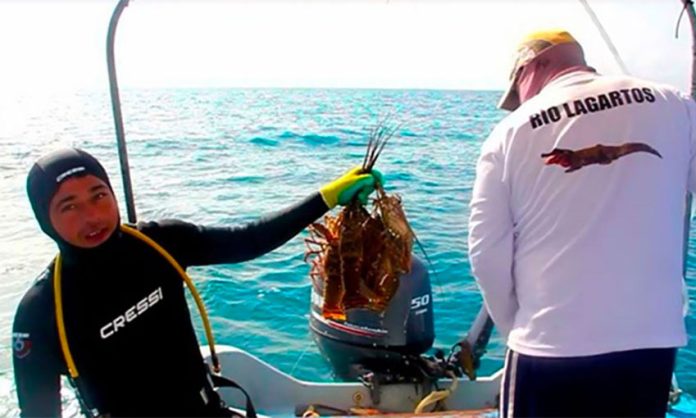Illegal fishing off the northern coast of Yucatán is out of control but authorities are doing little to stop it, according to local fishermen.
The problem is particularly bad in the southern Gulf of Mexico off the Costa Esmeralda, or Emerald Coast, a stretch of coastline where towns such as Progreso, Telchac Puerto, Dzilam de Bravo and Río Lagartos are located.
“Poaching is terrible, that’s the reality. … There are no longer any fish,” Carlos Puga, leader of a fishing cooperative in Río Lagartos, told the newspaper Milenio.
He said illegal fishermen work day and night throughout the whole year and are depleting stocks of fish and other marine creatures that legal fishermen depend on for their livelihood. Authorities carry out few operations to clamp down on the practice, he said.
“We can patrol at day but how can we at night?… It’s terrible and now there’s not just a few of them [illegal fishermen], there’s excessive poaching and now they’re attacking us from two sides,” Puga said.

“They come here from the west [Campeche] and they’re starting to arrive from the east [Quintana Roo]. There is illegal fishing in Quintana Roo and they come as far as here, Río Lagartos,” he said.
Puga said that illegal fishing will remain a problem while wholesalers continue to buy seafood such as lobsters and octopus during the closed season for those species. Most of the illicitly-caught product is shipped to Mexico City, Guadalajara and foreign markets, he said.
“… There’s a mafia, that’s the truth,” Puga said, adding that large-scale illegal fishing has been occurring for “three or four seasons.”
Milenio accompanied two Río Lagartos fishermen/lobster divers on a recent fishing trip, and while they were able to catch some 20 kilograms of lobster and grouper they recalled catches of 40-60 kilograms at the same time in previous years.
José Santiago Vallejos Marrufo, the fishing boat’s owner, and Gaspar Medina Gómez, his right-hand man, said they sometimes return to shore empty-handed because stocks are so depleted by illegal fishing.
“… There are good days and bad days. … We know we can fail but we can also win,” said Vallejos.
Asked whether illegal fishing angered him, he responded: “Well, yes but what can we do.”
Milenio sought to discuss the issue with the Yucatán delegate of the National Aquaculture and Fisheries Commission last week but Mauro Cristales Márquez said he couldn’t offer any comment in the lead-up to Sunday’s referendum over whether past presidents should be investigated for crimes they may have committed while in office.
Similarly, President López Obrador claimed in May that the government couldn’t respond to the nationwide drought because election silence rules in the lead-up to the June 6 elections prevented it from doing so.
Dulce María Sauri, president of the federal Chamber of Deputies and a former interim governor of Yucatán, was prepared to speak, telling Milenio that illegal fishing is an “extremely complex” issue but one that must be combatted.
The ministries of the Environment, the Navy and Economy all have responsibilities in the fight against the practice, she said.
Illegal fishing also occurs in other parts of the country – including the upper Gulf of California where the critically endangered vaquita marina porpoise lives. The United States NGO Oceana revealed in June that the practice was putting endangered species at risk in seven protected areas. Scorpion Reef, located due north of Progreso, was found to be the worst affected area, with 106 vessels recorded in a place where no type of fishing is allowed.
While much of the illegal fishing off the coast off Yucatán goes unpunished, there have been some arrests and seizures of illegally caught seafood. Most recently, two men were arrested last weekend by Yucatán police while transporting 720 kilograms of octopus, whose extraction is currently prohibited due to a closed season in the state.
With reports from Milenio
